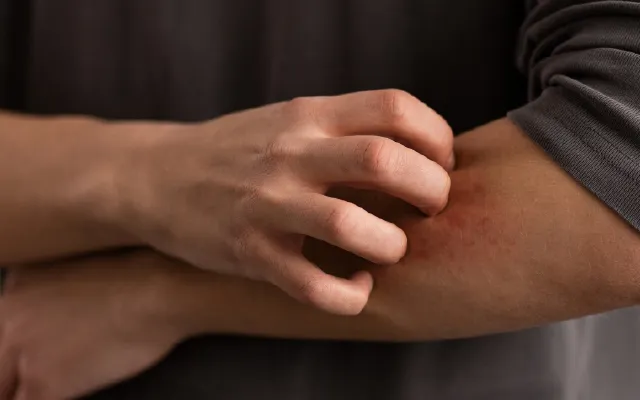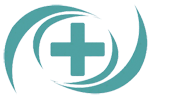
Allergies are a widespread condition, affecting many people worldwide. It is a condition that
arises when the immune system reacts to a harmful substance.
The immune system's main role is to protect the body from harmful invaders. However, the
immune system misidentifies certain substances as enemies in allergic individuals, leading to an
allergic reaction. Histamine and other chemicals develop in the blood, causing symptoms of an
allergy.
Common Allergic Conditions:
a. Allergic Rhinitis (Hay Fever):
Symptoms: Runny or stuffy nose, Sneezing, itchy or watery eyes, and itchy throat or ears.
Common Allergens: Mold, Dust particles, and pollen.
Treatment:
Moisturizers, corticosteroid creams, and antihistamines. In severe cases, oral corticosteroids or
antibiotics may be prescribed.
b. Atopic Dermatitis (Eczema):
Symptoms: Red rashes, Itchy often on the hands, feet, or face.
Common Triggers: Junk foods and irritants (like soaps and facewash).
Treatment:
Moisturizers, corticosteroid creams, and antihistamines. In severe cases, oral corticosteroids or
antibiotics may be prescribed.
c. Asthma
Symptoms: Wheezing, cough, wheezing, chest tightness.
Common Triggers: Allergies, cold air, respiratory infections, and exercise.
Treatment:
Inhalers containing bronchodilators (such as albuterol) can provide immediate relief of
symptoms, and inhaled corticosteroids can provide long-term control.
d. Food Allergies:
Symptoms: Hives, digestive problems, allergies, or nasal congestion.
Common Triggers: Peanuts, tree nuts, milk, eggs, and shellfish.
Treatment:
The best way is to avoid the foods that cause your allergies. Epinephrine auto-injectors are
necessary for people at risk of anaphylaxis.
e. Anaphylaxis:
Symptoms: Severe allergic reactions, difficulty breathing, rapid heartbeat or fatigue, and skin
rashes occur quickly.
Common Triggers: Food allergies, insect bites, chemicals and latex.
Treatment: Administration of epinephrine and emergency medical treatment.
Advances in Allergy Treatment:
- Immunotherapy: This treatment involves increasing allergens in the body, helping the immune system to become less sensitive.
- Sublingual Immunotherapy: Allergen tablets are placed under the tongue to develop tolerance to allergens.
Natural and Alternative Treatments:
Butterbur Extract: Some studies have shown it to be effective in reducing fever symptoms.
Acupuncture therapy: Some people use acupuncture to relieve allergy symptoms.
Probiotics: They can help balance the intestines and reduce the risk of allergies, especially
in
children.
Allergy Prevention:
Allergen Avoidance: The most effective strategy for preventing allergic reactions.
HEPA Filters: Use them around the house to prevent allergies and reduce exposure.
Routine Cleaning: Regular cleaning of living spaces can help reduce indoor germs like dust and
pet dander.

Why Allergy Treatment is Crucial in Rehabilitation Centers:
- Maximizing Recovery: Allergies can worsen symptoms associated with initial recovery. For example, people recovering from respiratory infections may experience difficulty if allergies that cause difficulty breathing are not controlled.
- Avoiding Medication Interactions: Recovering patients may take a variety of medications. It is important to ensure that allergy treatment is not interrupted.
- Improving Quality of Life: Even though patients are going through a recovery process, keeping them free of allergy symptoms can improve their health and motivation.
Basic Allergy-Related Considerations in Rehabilitation Centers:
Nursing and rehabilitation centers take some considerations such as :
- Diet Allergies- The nursing and rehabilitation center takes special measures for food, diet intake, and calories.
- Environment - The nursing and rehabilitation center creates an eco-friendly, clean, and healthy atmosphere for the faculty. And looks after common triggers such as dust, mold, and pollen.
- Allergy Medication - Nursing and rehabilitation centers have a special team of professional doctors and well-trained nurses to look after patients individually and suggest allergy medication according to their needs and requirements.
- Meditation - Meditation is a valuable tool as it helps patients manage stress, recover fast, and control their cravings.
- Education - Nursing and rehabilitation centers educate parents or guardians about patients' health, medicines, and care.
- Analysing - Nursing and rehabilitation centers monitor patients' health regularly and analyze their reports.
- Allergy Treatment Plans - The nursing and rehabilitation center decides the treatment plan for individual patients after analyzing and monitoring their health condition.

